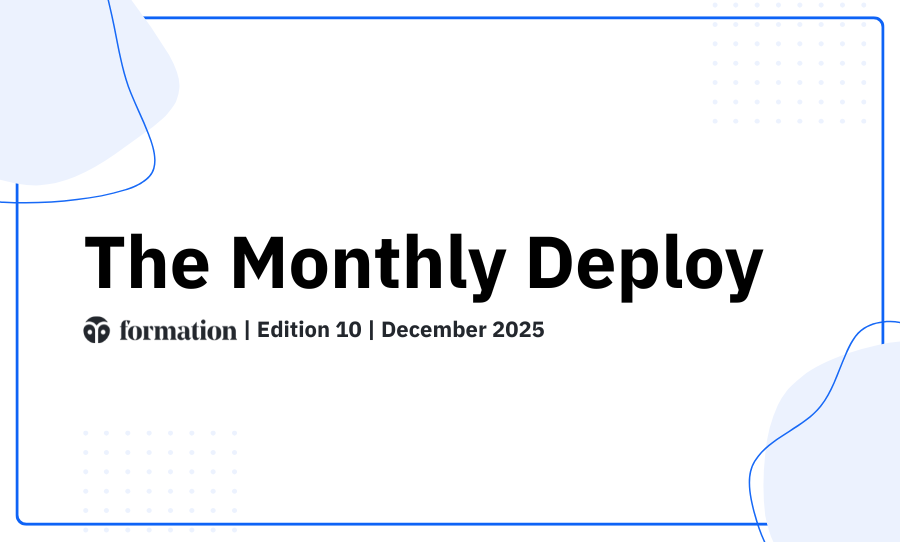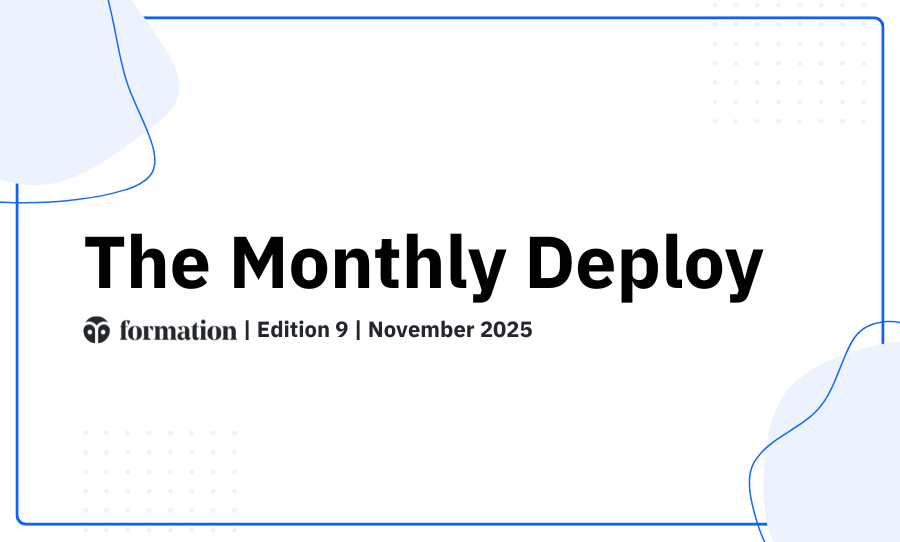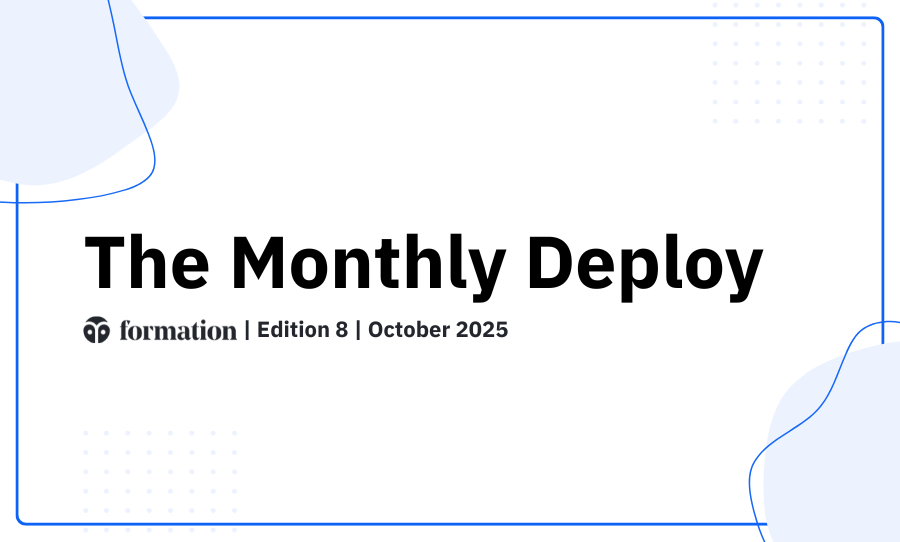2022 Formation Fellowship Placements
We're excited to share a bit about who our 2022 placed Fellows are and what they've accomplished.
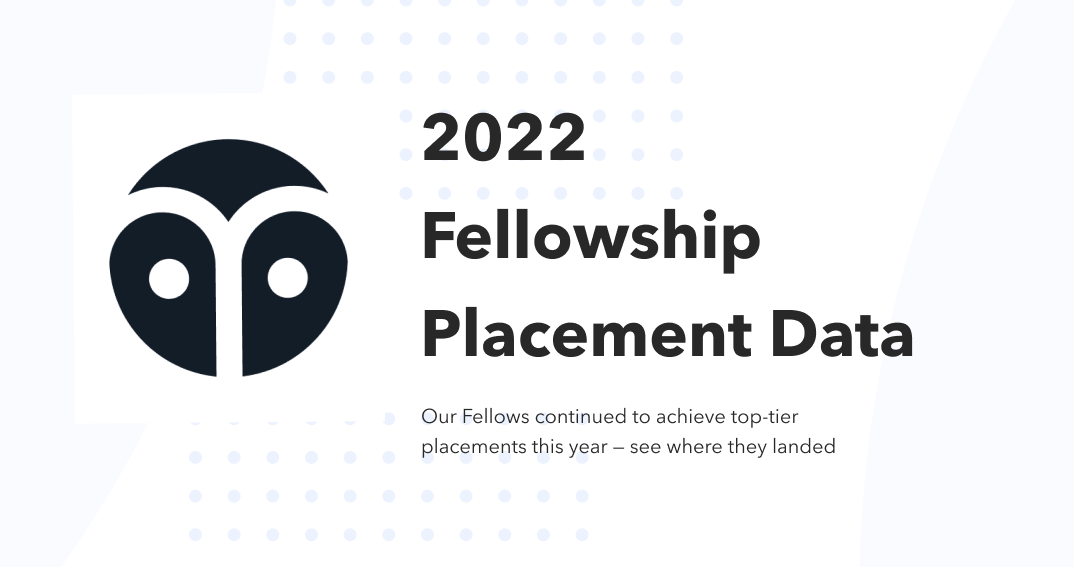
We won’t sugarcoat it: it’s been a challenging year for the tech industry. We’ve seen it all — from rescinded offers to mass layoffs. Despite the difficult times, our Fellows accomplished an extraordinary amount this year and continued to achieve top-tier placements. We’re honored to play a small role in their journeys and proud of their commitment to up-leveling their careers.
While we plan on publishing a more in-depth, comprehensive outcomes report in the New Year, we wanted to provide a sneak peek at what our Fellows accomplished this year. Before we get into the placement data, I want to provide a bit of context about it.
As a company, we strive to be as transparent as possible with our communications and data, while protecting our Fellows’ privacy and identities. Our training is dynamic and unique to each engineer depending on their personal goals, and we’ve further fine-tuned our training specifically for software engineers with industry experience. Our goal is to present our placement data in a way that allows each person to evaluate it in relation to their personal circumstances and, ultimately, make a sound decision about what’s right for them. We hope that by providing clean and digestible data, prospective Fellows will have what they need to decide if our Fellowship is the right fit for them.
Formation’s mission is to create the diverse engineering workforce we want to see in the world, and that means training engineers from all walks of life and educational backgrounds. In 2022, the majority of our placed Fellows identified as being from one or more historically underrepresented backgrounds in tech. We're excited to share a little bit more about who our 2022 placed Fellows are:
- 62% of Fellows had non-Computer Science degree backgrounds
- 65% of Fellows had full-time software engineering work experience (YOE), and 21% had 3+ years
- Engineers with no professional experience were split roughly equally between bootcamp grads (11%), computer science grads (12%), and self-taught and non-computer science grads (11%)
- 59% of our placed Fellows identify as being from one or more underrepresented backgrounds in tech
Below we’ve included our placed Fellows’ average first year total compensation, stock/bonuses, and base salaries based on their years of experience when starting at Formation. Aggregating compensation in averages and medians doesn’t tell the entire story but helps preserve the anonymity of each Fellow. The range of first year total compensation ranged from $70K to $500K. In addition, you'll find an exhaustive, randomized list of the companies each Fellow landed at in 2022.
Fellows’ average first year compensation
One benefit of having a completely remote Fellowship is getting to work with a diverse group Fellows who live all over the country. Based on where a Fellow lives and/or accepts a role, their compensation can vary. Below, we've averaged out all placed Fellows' first year compensation packages based on their years of full-time software engineering experience.
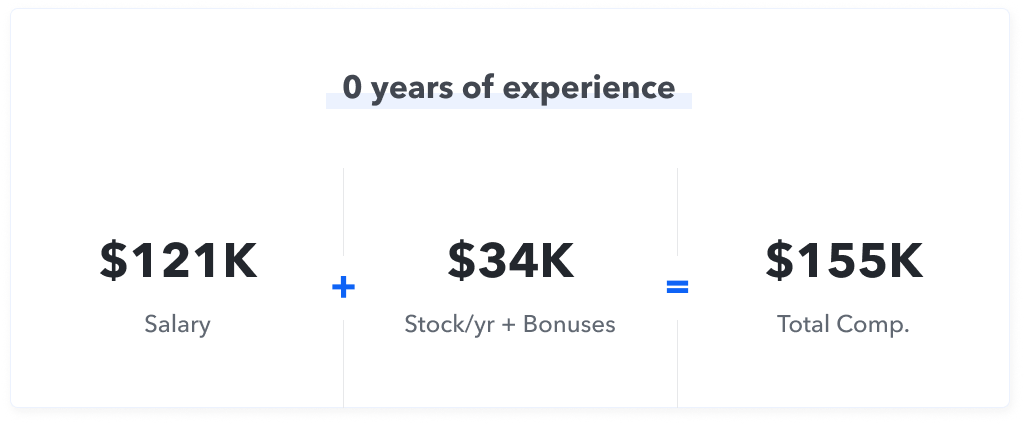
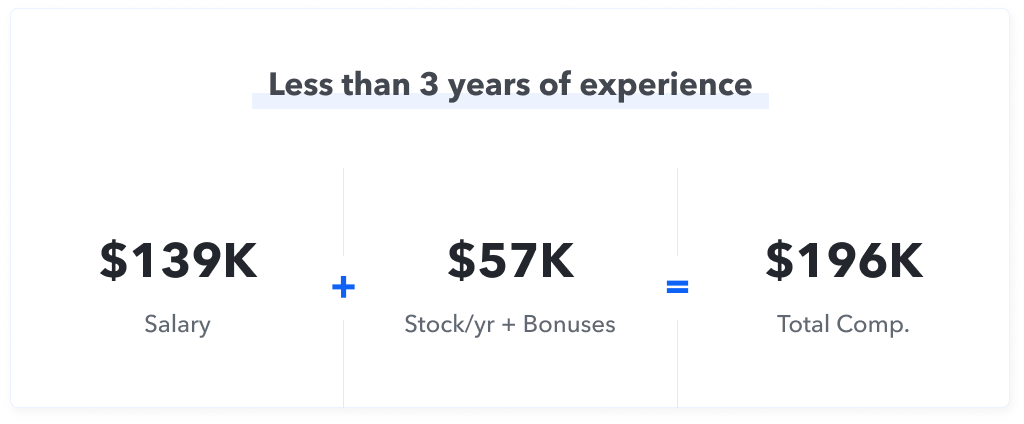
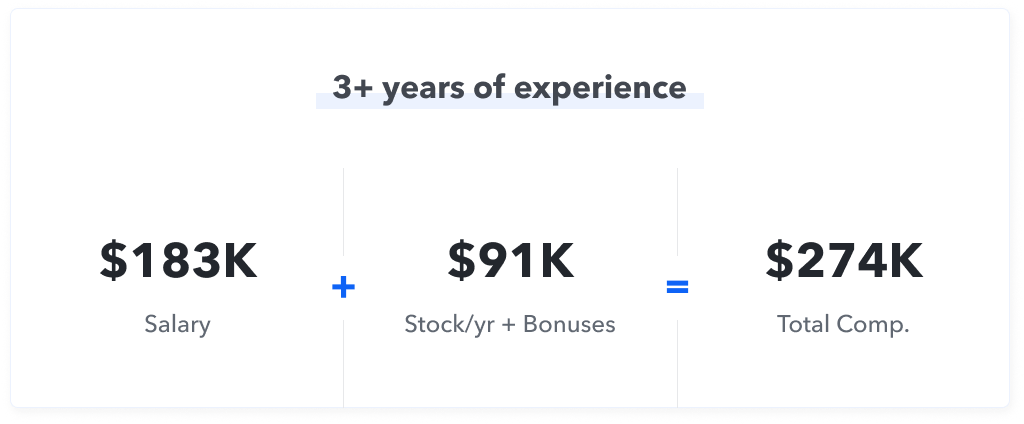
2022 Fellow Placements
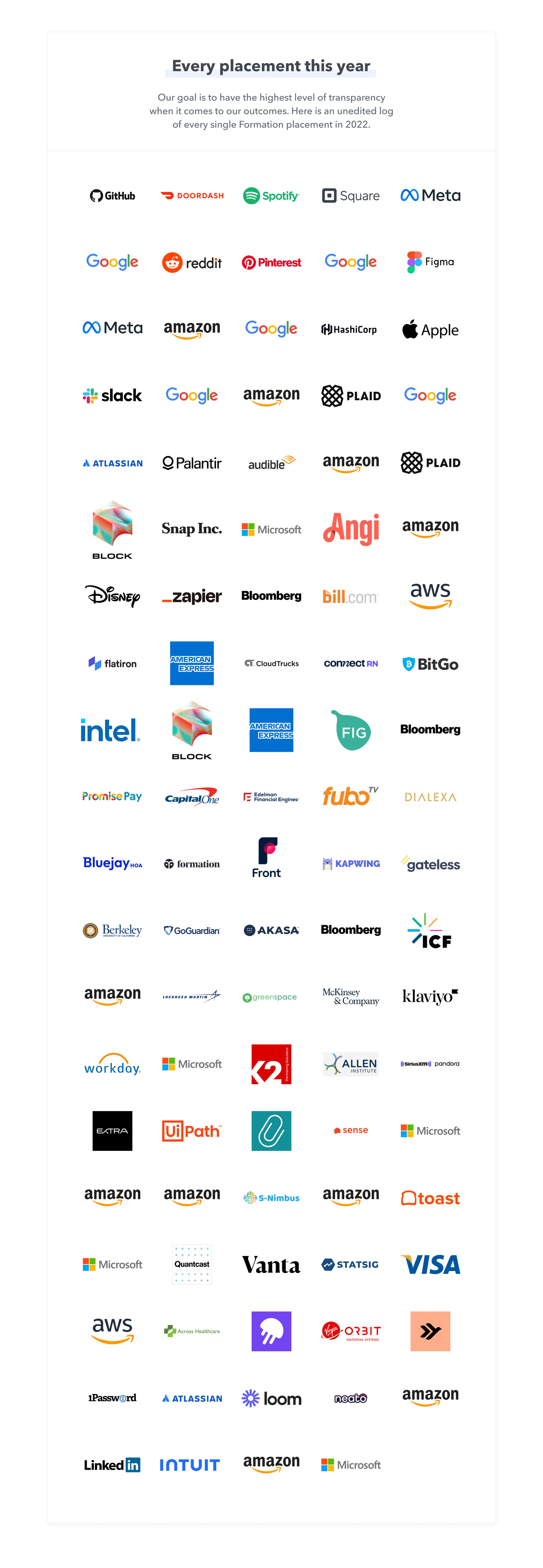
How we calculate our numbers (expandable)
- Top companies don’t only compensate with competitive base salaries, but with bonuses and stock grants. For experienced engineers, stock grants are an essential part of a package. When negotiating offers, you should be thinking in terms of total compensation instead of salary alone.
- Fellows’ total compensation is the sum of their base salary, first-year signing bonus, target performance bonus (or average if provided as a range), and the value of equity vesting in the first year. If a signing bonus is spread out over multiple years, we include only the amount granted during the first year. Target performance bonuses are calculated by multiplying the target bonus percentage a Fellow reports with the reported base salary. For determining the value of public stock when a value is not provided by a company with the offer letter, we are using the stock price’s closing price on the person’s job start date. For determining the value of private equity, we are using the latest fair current preferred stock price of the stock, if available, and we are excluding entirely the value of private stock and options where a value is not available (which is most of the time). If any stock is granted in the form of options and there is a fair current price, we are subtracting the strike price from the fair current preferred stock price.
- The value in each specific category of compensation is an average of all data in that category, where blank answers are valued to be $0 in that category. For equity, if someone received equity that has no fair current value, we exclude the person from the average for the equity component only.
- The average total compensation is calculated as the sum of the averages in each category of compensation. Rather than computing individual total compensation per person and averaging those, we sum the averages of each category since there is no fair individual total compensation for someone with equity that has no fair current value.
- For years of experience, we are including only full-time software engineer experience as work experience. We exclude internships, part-time work, education (such as a CS degree), and non-software engineering work experience.
- While this is the average increase across all of our Fellows placed in 2022, individual results will vary, and each individual’s success depends on their experience, dedication, and desire.
- These numbers are accurate as of our last update on December 12th, 2022, and are based on Fellows who submitted placement data on or after January 1st, 2022.
Despite the challenging economy, we've been able to help our Fellows land life-changing roles. Ready to level-up your own career? Apply to Formation today.

